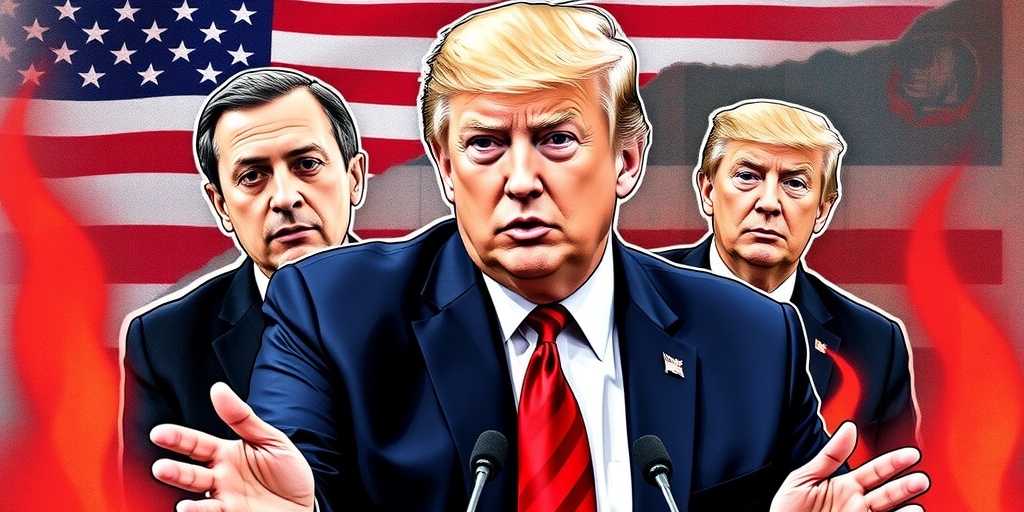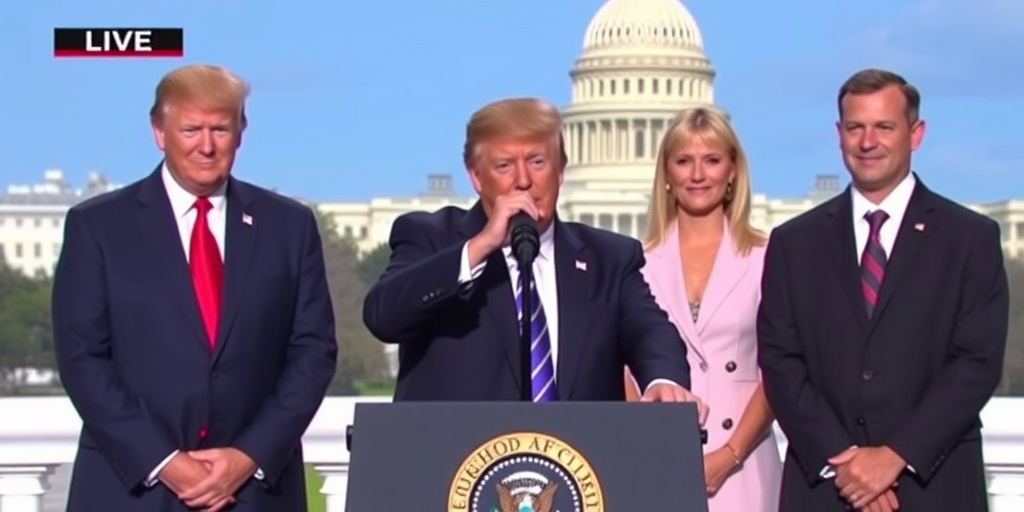Now Reading: Trump Uses Alien Enemies Act to Deport Venezuelans
-
01
Trump Uses Alien Enemies Act to Deport Venezuelans
Trump Uses Alien Enemies Act to Deport Venezuelans
Trump Issues Executive Order for Deportation of Venezuelan Gang Members Under Alien Enemies Act
In a significant escalation of immigration enforcement, President Donald Trump announced on Saturday an executive order aimed at deporting Venezuelan gang members by invoking the rarely used Alien Enemies Act of 1798. This wartime law, historically applied in times of conflict, allows for expedited removals with minimal due process, a move that has sparked immediate legal challenges.
The executive order targets Venezuelan nationals aged 14 and older who are currently residing in the United States without legal authorization and are affiliated with the Tren de Aragua gang. The proclamation states that these individuals “are liable to be apprehended, restrained, secured and removed” from the country.
The Alien Enemies Act permits the government to enact summary deportations of individuals from nations with which the United States is at war. This controversial law gained notoriety during World War II for its role in the internment of Japanese Americans. Historically, the act has been invoked only three times during U.S. history—in the context of the War of 1812, World War I, and World War II, as documented by the Brennan Center for Justice, a legal and policy organization.
Interestingly, just hours prior to the White House’s release of the proclamation, the American Civil Liberties Union (ACLU) filed a lawsuit on behalf of five Venezuelan men, seeking to halt the president’s application of the law. The case reflects deeper concerns about the potential for widespread deportations under an executive authority that lacks robust checks and balances.
In a response to the unfolding situation, Federal District Court Judge James E. Boasberg issued a limited order preventing the government from deporting the five individuals involved in the ACLU lawsuit. The Trump administration quickly filed an appeal against this ruling, while the ACLU urged the judge to extend his order to apply to broader swathes of immigrants who might be affected by the Alien Enemies Act.
The lawsuit argues that the Venezuelan plaintiffs face an "immediate risk of deportation," emphasizing that the government’s actions allow agents to expeditiously remove noncitizens from the U.S. The ACLU maintains that the Alien Enemies Act cannot justly be applied to nationals of a country, in this case, Venezuela, with which the U.S. is not formally at war. The invocation of this law raises questions about its applicability, especially in light of its explicit conditions that stipulate a declared war or a military invasion for it to be enacted.
As the situation escalates, the White House and the Department of Homeland Security, the entity managing immigration enforcement, have remained tight-lipped, not responding to inquiries concerning the initiative.
Legal experts, such as Noah Feldman, a constitutional law professor at Harvard University, indicate that the outcome of this case could eventually find its way to the Supreme Court. The crux of the matter hinges on how much deference courts will grant to the president’s assertions regarding a perceived "threatened incursion." Given the lack of precedent in applying the Alien Enemies Act in the current context, judges will face a challenging task in determining the constitutionality and legality of the administration’s interpretations.
Trump’s administration has historically labeled unauthorized immigration as an "invasion," a rhetoric that has informed many of its immigration policies and strategies. In his recent efforts, one of Trump’s first executive orders after resuming the presidency was titled "Protecting the American People Against Invasion," emphasizing the administration’s commitment to aggressive immigration enforcement.
The proclamation calling for the deportation of gang members is notably focused on Tren de Aragua, a criminal organization that has emerged from Venezuela, notorious for its involvement in sex trafficking, drug-dealing, and human smuggling operations.
However, the implications of the Alien Enemies Act extend beyond this specific gang, potentially enabling the Trump administration to detain and deport any immigrants aged 14 or older without judicial hearings. Critics argue that this radical application of a wartime authority for immigration enforcement represents a troubling and unprecedented overreach. Lee Gelernt, an ACLU attorney, described the initiative as “as unprecedented as it is lawless,” adding that it could represent one of the administration’s most extreme measures to date.
As legal battles unfold, the ramifications of this executive order could significantly affect the landscape of immigration enforcement in the United States and set a precedent for how wartime laws are interpreted and applied in modern contexts.
Stay Informed With the Latest & Most Important News
Previous Post
Next Post
-
 01New technology breakthrough has everyone talking right now
01New technology breakthrough has everyone talking right now -
 02Unbelievable life hack everyone needs to try today
02Unbelievable life hack everyone needs to try today -
 03Fascinating discovery found buried deep beneath the ocean
03Fascinating discovery found buried deep beneath the ocean -
 04Man invents genius device that solves everyday problems
04Man invents genius device that solves everyday problems -
 05Shocking discovery that changes what we know forever
05Shocking discovery that changes what we know forever -
 06Internet goes wild over celebrity’s unexpected fashion choice
06Internet goes wild over celebrity’s unexpected fashion choice -
 07Rare animal sighting stuns scientists and wildlife lovers
07Rare animal sighting stuns scientists and wildlife lovers



















